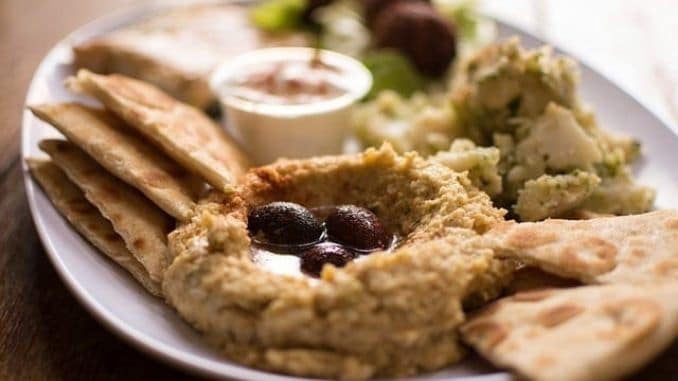
We’re in the grip of a sleep deprivation epidemic. The Centers for Disease Control and Prevention (CDC) stated in 2016 that more than one-third of American adults weren’t getting enough sleep on a regular basis. The National Institutes of Health (NIH) states that adults need seven to eight hours a night, but nearly 30 percent report an average of fewer than six hours of sleep per night.
Best foods for sleep can be an important factor in addressing the dangers of sleep deprivation. Lack of sleep is dangerous for a number of reasons. People who don’t get enough are more likely to suffer from diabetes, depression, obesity, high blood pressure, and cancer and have an increased risk of mortality. Recent studies have also linked sleep deprivation to an increased risk of dementia and Alzheimer’s disease.
Most of us have heard about these dangers, and we know that we need more sleep, but we’re still struggling. Here’s one thing you may not have tried: Best Foods for Sleep. Certain types of foods and beverages can help you get to sleep more easily and enjoy a deeper sleep once you’re there. We found 10 of the most promising options.

Take Specific Actions to Improve Your Quality of Sleep
First, we have to ask you: Have you taken any action lately to improve your sleep?
According to a Better Sleep Council survey, about half of Americans say they don’t get enough sleep, but less than half have taken any specific action to improve the situation. Adults 35 to 54 years old felt more sleep deprived (52 percent) than other adults (44 percent for those age 18 to 34 and 42 percent for those age 55 and older), but often took the wrong steps in trying to make it better.
Close to one-third of adults turned to coffee and other caffeinated drinks to stay awake the next day, for instance, rather than taking naps or trying to improve nighttime sleep. While most understood that sleep deprivation makes it harder to concentrate and tends to increase stress. Less than 30 percent believed that a lack of sleep increased risk of serious issues like heart disease, stroke, diabetes and memory loss.
There are several studies showing strong connections between sleep deprivation and serious health issues. The Institute of Medicine United States Committee on Sleep Medicine and Research states in their book, “Sleep Disorders and Sleep Deprivation: An Unmet Public Health Problem,” “After decades of research. The case can be confidently made that sleep loss and sleep disorders have profound and widespread effects on human health.”
They add that the cumulative long-term effects of sleep loss include all those diseases mentioned above. And, estimate that 50 to 70 million Americans suffer from sleep problems.
Best foods for sleep can be an important factor in addressing the dangers of sleep deprivation. Lack of sleep is dangerous for a number of reasons. People who don’t get enough are more likely to suffer from diabetes, depression, obesity, high blood pressure, and cancer and have an increased risk of mortality. Recent studies have also linked sleep deprivation to an increased risk of dementia and Alzheimer’s disease.
To increase the odds that you’ll get a good night’s sleep, take the following steps:
- Check with your doctor: If you snore or wake up with headaches or a sore throat. You may have sleep apnea, a serious condition that can lead to chronic sleep deprivation. There are other medical causes of regular insomnia too, so it’s best to rule these out before proceeding.
- Check on your medications: Some medications can interfere with sleep. These include alpha and beta blockers (used to treat high blood pressure), and corticosteroids. Some antidepressants, ACE inhibitors and other heart disease medications, Alzheimer’s medications, antihistamines, statins (used to treat high cholesterol), anti-arrhythmics (used to treat heart rhythm problems), diuretics and asthma medications. Not everyone is affected, but if you are experiencing insomnia. It’s worthwhile checking to see if one of your medications may be keeping you up. Your doctor may be able to recommend a different type of medication or adjust your dosage to help.
- Check your mattress: Most mattresses need to be replaced after eight to 10 years. Check yours for sagging spots or overall lack of support and invest in a new one if you need to. It’s one of the most important investments you’ll make.
- Keep your room dark and cool: Light signals the brain that it’s time to wake up. So keep your room as dark as you can. Invest in darker blinds if necessary. A hot room also disrupts sleep — experts recommend between 60 and 67 degrees Fahrenheit.
- Stick to a regular schedule: Going to bed and getting up at the same time every dayven on weekends — helps to regulate your internal clock so that you can fall asleep more easily.
- Exercise daily: Exercise is one of the best things you can do to improve sleep. It not only wears you out, but it helps ease stress and increase relaxation.
- Follow a regular bedtime routine: What you do before you go to bed can have a big impact on your quality of sleep. Avoid caffeine and alcohol (it disrupts deep sleep), turn the technological gadgets off (they emit blue light that disrupts sleep hormones) and engage in a quiet activity like reading, stretching. Taking a warm bath or listening to some soft music.
- Eat lightly: Eating a heavy meal at night tends to interfere with your sleep, particularly if you go to bed two or three hours after dinner. Eat your evening meal earlier in the evening and. If you need a snack before bed. Try to make sure you eat it at least an hour before and keep it light.
10 Foods that Help Improve Your Sleep
In addition to the above steps, you can also use your diet to improve your quality of sleep. Below are 10 Foods that Help Improve Your Sleep:
1. Walnuts
These are a good source of tryptophan, which is a sleep-enhancing amino acid that helps produce more melatonin, the body’s sleep hormone. They also are a good source of melatonin directly and have shown in studies to help increase blood levels of melatonin.
We naturally produce less melatonin as we age, which may be one of the reasons we start to have trouble sleeping. Walnuts are a natural source of the hormone and also give us inflammation-fighting omega-3 fatty acids. Try a small handful about an hour before bed.
2. Almonds
You can mix in a few almonds with those walnuts if you like, as they are rich in magnesium, which is also needed for quality sleep. A 2012 study, for example, reported that magnesium supplements helped improve insomnia. Participants were able to fall asleep more easily and stay asleep for longer.
Dr. Nerina Ramlakhan, a sleep therapist and author of “Tired But Wired: How to Overcome Your Sleep Problems”. Suggests eating eight almonds and two dates within 30 minutes of waking up to help prepare the body for a good night’s sleep. The combination helps encourage melatonin production later in the evening:
“Believe it or not, eating breakfast can help you sleep. If you don’t eat breakfast, your body believes it is living in famine and produces stress hormones that are not conducive to restful sleep.”
3. Tart Cherry Juice
We mentioned in a previous post that tart cherry juice can help ease inflammation and soothe muscle and joint pain. It turns out that it may also help you sleep.
In a 2010 study of people with chronic insomnia, those who drank a cup of tart cherry juice twice a day reported significant improvements. It could be that the pain-relieving properties of the juice help the body relax more at night.
We’ve also discovered that tart cherries naturally boost levels of melatonin.
4. Lettuce
It may be hard to believe that fresh, crisp lettuce could help you sleep, but studies show that it has a sort of hypnotic property. Researchers gave subjects lettuce extract, for example, and found that it prolonged sleep duration. It worked so well that its effects were compared to those of the anti-anxiety medication diazepam.
The effects seem to be caused by a substance in lettuce called lactucin. Researchers have found that romaine lettuce has a higher content of lactucin, compared to green and red lettuce varieties. The seed and leaf extracts derived from romaine lettuce helped increase sleep duration.
5. Chamomile & Other Teas
Several flavors of tea can help you relax and get to sleep. Chamomile tea, for example, is associated with increasing glycine, a chemical that encourages nerves and muscles to relax. Studies have shown that it can help people fall into a deep sleep. It’s widely regarded as a mild tranquilizer and sleep-inducer.
Researchers think the flavonoid apigenin also contributes to chamomile’s sedative effects. Since it binds to benzodiazepine receptors in the brain, producing a hypnotic-like result.
Other good bedtime teas include lavender, valerian root, lemon balm, ginger and passionflower. Even plain green tea contains theanine, an amino acid that promotes relaxation. Just be sure that you’re not oversensitive to the small amounts of caffeine.
6. Shrimp & Lobster
If you’re a seafood fan, feel free to eat these items more often for dinner. They are both good sources of tryptophan, which the body converts into the “feel-good” neurotransmitter, serotonin. This helps you relax and ease stress so that you’re more likely to sleep well.
Other fish that are rich in tryptophan include cod, tuna and halibut — they all have higher levels even than turkey.
7. Best Foods For Sleep – Yogurt
Yogurt and other foods that contain probiotics could help improve your sleep. Recent research shows that probiotics not only help regulate digestion, they can also help produce and regulate tryptophan, melatonin and serotonin and other chemicals that encourage restful sleep.
When you eat foods rich in probiotics, you also increase beneficial bacteria in the gut. Which has been shown to improve quality sleep, particularly when these foods are consumed regularly during a period of several weeks. Probiotics were found to be helpful even in infants. Those who received them developed a more mature sleep pattern in one study.
Yogurt also makes a good bedtime snack because it’s easy to digest, is a good source of satisfying protein and provides a healthy dose of calcium. Be sure to choose a low-sugar option.
8. Cereal & Milk
Milk contains sleep-inducing tryptophan and the carbohydrates in cereal help the brain absorb that tryptophan. Avoid the high-sugar options, however, as they can disrupt digestion. Go for the whole-grain, low-sugar options and eat only a small bowl to avoid overloading your digestive system.
Oatmeal is a good option, as it’s also a natural source of melatonin. The grains in oatmeal trigger insulin production, which naturally makes you feel sleepy.
9. Crackers & Cheese
Cheddar cheese is a natural source of tryptophan and also provides calcium, which is important for a good night’s sleep as it helps your brain use the tryptophan to produce more melatonin. The crackers provide just enough carbohydrates to help you feel sleepy.
An interesting study also found that just a little cheese at night not only helped participants sleep better, but also inspired interesting dreams. Those eating cheddar, for example, were more likely to report dreaming of celebrities while those eating blue cheese reported vivid, “wacky” dreams (not nightmares).
10. Hummus
Chickpeas, which are used to make hummus, are rich in tryptophan and are also good sources of B vitamins like folate and vitamin B-6. Both of these are important in helping to regulate the body’s internal clock. B-6 also helps the body produce serotonin.
Try some hummus spread on a small slice of bread or a couple of whole-grain crackers before bed to more easily drift off.
If you are looking for ways on how to bring back your natural vitality while relieving chronic inflammation and boosting up the natural fat burning hormones of your body, then check out the Best Foods that Rapidly Slim & Heal in 7 Days program, here!








